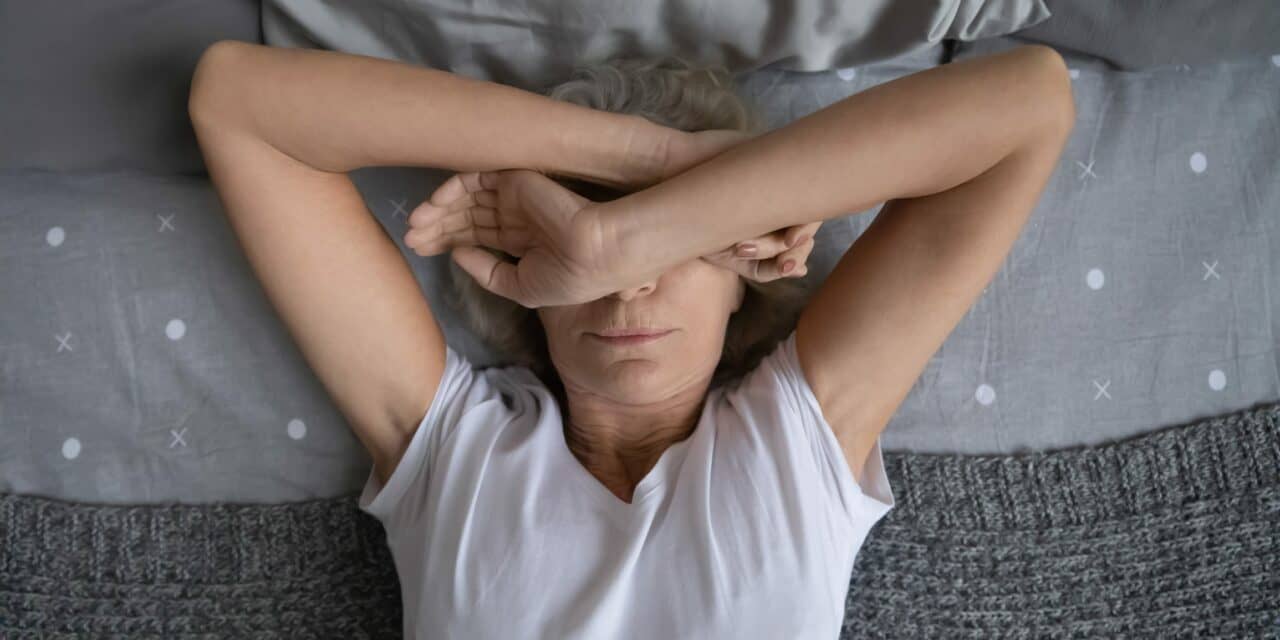Weekend catch-up sleep may minimize the risk of hyperuricemia (elevated serum uric acid) in postmenopausal women, according to a new study published in Menopause.
Sleep deprivation, especially common during postmenopause, has been linked with a number of health problems, including hyperuricemia, which is most often associated with gout, an increasingly common form of arthritis characterized by severe pain, redness, and tenderness in joints. Pain and inflammation occur when too much uric acid crystallizes and deposits in the joints. In addition, hyperuricemia is associated with metabolic syndrome, diabetes, hypertension, and kidney and cardiovascular diseases.
The prevalence of hyperuricemia increases with age in all populations and especially in women after menopause. That’s because, according to previous studies, hyperuricemia is inversely related to estrogen levels. A suggested approach to lowering the risk of hyperuricemia is adequate sleep duration, which becomes more of a challenge during the postmenopausal phase.
In this latest study involving nearly 1,900 participants, the researchers hypothesized that weekend catch-up sleep could be a solution to making up for lost sleep during the week and effectively lowering the risk of hyperuricemia in postmenopausal women, who often struggle to get sufficient sleep.
Study results suggest that weekend catch-up sleep is linked with a lower prevalence of hyperuricemia in postmenopausal women with insufficient sleep. Further studies are required to identify the causal relationships between sleep recovery and hyperuricemia in postmenopausal women.
“Elevated serum uric acid levels are associated with multiple cardiovascular disease risk factors, whereas sufficient, good-quality sleep has proven health benefits. This study shows that weekend catch-up sleep of just one to two hours was linked with a lower prevalence of hyperuricemia in postmenopausal women with insufficient sleep. Although the mechanisms responsible for these findings remain unclear, a weekend nap may be just what the doctor ordered,” says Stephanie Faubion, MD, medical director of The North American Menopause Society.
Photo 192575151 © Fizkes | Dreamstime.com



![Sleep for Sale: The Nap Lounge Business Model [Editor’s Message]](https://sleepreviewmag.com/wp-content/uploads/2019/01/sleep-sale-nap-lounges-440x264.jpg)